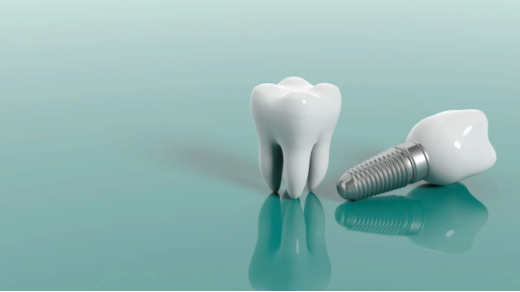Oral health is an essential part of overall well-being, influencing not only the appearance of your smile but also your confidence and overall health. Comprehensive dental treatments provide solutions for a variety of dental concerns, ranging from routine cleanings to advanced restorative procedures. This guide will explore key dental treatments, with a focus on dental implants and dental implant surgery.
Dental Implants: A Permanent Solution for Missing Teeth
Dental implants are one of the most advanced and reliable treatments for replacing missing teeth. An implant acts as a sturdy foundation for artificial teeth, making them a permanent solution for those who have lost teeth due to injury, decay, or other issues. The implant itself is a small titanium post surgically placed into the jawbone, which integrates with the bone over time to provide a secure base for a crown, bridge, or denture. Implants are highly durable, restore functionality, and enhance the appearance of your smile, making them a preferred choice for many patients seeking long-term tooth replacement options.
Dental Implant Surgery: The Key to a Successful Implant Placement
Dental implant surgery is a precise and carefully planned procedure that involves the placement of a titanium post into the jawbone to serve as the root of the new tooth. The success of dental implant surgery depends on various factors, including the patient’s overall oral health, the quality of the jawbone, and the experience of the dental surgeon. Typically performed under local anesthesia or sedation, the surgery is minimally invasive, and recovery time is relatively short. Once the implant has successfully integrated with the bone, a custom-made crown is placed on top to restore the functionality and appearance of the missing tooth.
Teeth Whitening: Brightening Your Smile
In addition to implants, many patients seek teeth whitening treatments to enhance the appearance of their smile. Over time, teeth can become discolored due to factors such as aging, food, drinks, and smoking. Teeth whitening procedures, available in-office or through take-home kits, can effectively remove stains and brighten the smile. Professional whitening treatments offer faster and more noticeable results compared to over-the-counter products, and a dentist can tailor the procedure to meet the needs of each individual.
Crowns and Bridges: Restoring Damaged or Missing Teeth
Crowns and bridges are common treatments used to restore damaged or missing teeth. Crowns are custom-made caps that fit over a damaged or decayed tooth to restore its shape, size, and function. They are made from durable materials such as porcelain, ceramic, or metal and can be used for both cosmetic and functional purposes. On the other hand, a bridge is used to replace one or more missing teeth by anchoring an artificial tooth to adjacent teeth. Both crowns and bridges can help restore oral health, improve the appearance of your smile, and prevent further dental complications.
Dentures: An Option for Multiple Missing Teeth
For patients who are missing multiple teeth or even a full set of teeth, dentures provide a practical solution. Dentures are removable prosthetics designed to replace missing teeth and restore functionality to the mouth. There are two types of dentures: full and partial. Full dentures are used when all teeth are missing, while partial dentures are designed to fill in gaps when some natural teeth remain. Dentures can greatly improve chewing ability, speech, and facial appearance.
Root Canal Therapy: Saving a Damaged Tooth
When the pulp inside a tooth becomes infected or inflamed, root canal therapy may be necessary to save the tooth. The procedure involves removing the damaged pulp, cleaning the inside of the tooth, and sealing it to prevent further infection. Root canals are typically performed under local anesthesia, and patients can return to their regular activities shortly after treatment. This procedure helps preserve the natural tooth and avoid the need for an extraction, which can lead to further dental complications.
Regular Check-ups and Cleanings: Preventing Future Issues
Alongside advanced treatments, regular dental check-ups and cleanings play a crucial role in maintaining optimal oral health. Professional cleanings help remove plaque and tartar buildup, preventing cavities, gum disease, and other oral health issues. During routine visits, a dentist can also detect early signs of dental problems, allowing for prompt treatment before they develop into more severe conditions.
Conclusion
Comprehensive dental treatments are essential for maintaining oral health and addressing a variety of dental concerns. Whether it’s dental implants, crowns, bridges, or preventive care, each treatment is designed to restore functionality, improve aesthetics, and promote long-term oral health. Dental implants, including the surgical procedure required for their placement, offer a permanent solution for missing teeth, while other treatments like teeth whitening and root canals ensure your smile remains healthy and vibrant. Regular visits to your dentist ensure that your oral health stays on track, preventing future issues and maintaining the beauty of your smile.




